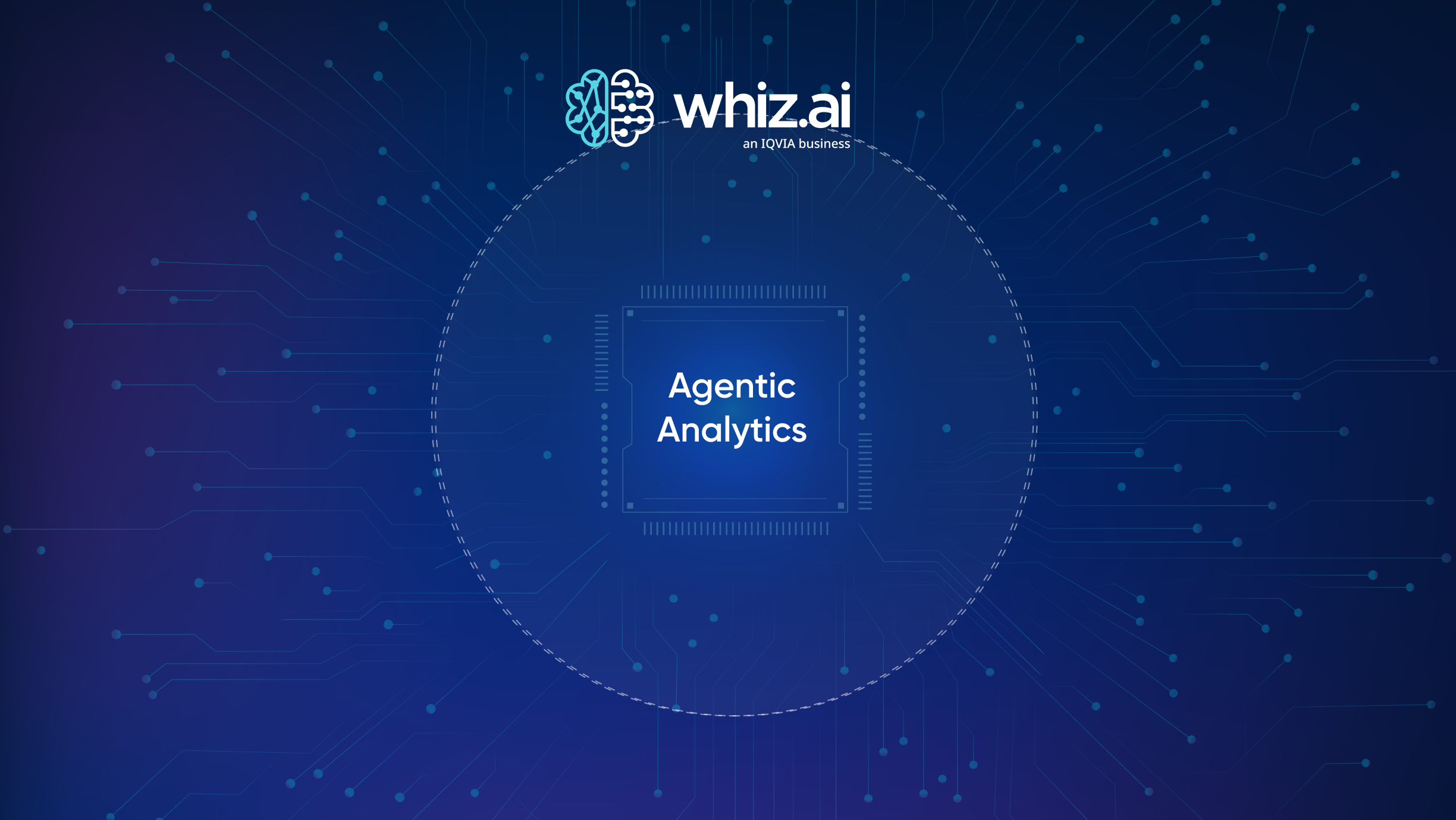Leveraging AI-Powered Analytics to Drive Commercial Success in Life Sciences
.avif)

The life sciences industry is navigating an increasingly complex healthcare environment. With evolving market dynamics, new therapies, and a shifting provider landscape, traditional data analytics approaches are falling short. To stay competitive, life sciences companies must rethink how they derive and act on insights—turning to AI-powered analytics for a game-changing advantage.
Why the Shift? The New Reality in Life Sciences
The life sciences industry faces a rapidly changing landscape marked by:
1. Complex Patient Journeys: With personalized medicine on the rise, patients now traverse intricate pathways involving multiple stakeholders.
2. Data Explosion: An exponential increase in patient data, payer information, real-world evidence, and digital health records makes deriving actionable insights increasingly challenging.
3. Market Dynamics: Healthcare mergers and consolidations are altering decision-making structures, while competitive pressures demand agility and innovation.
Traditional analytics tools are often ill-equipped to handle these complexities, leaving organizations struggling to extract meaningful insights.

Unlocking The Power of AI in Commercial Analytics
AI-powered platforms use machine learning (ML), natural language processing (NLP), and natural language generation (NLG) to transform how life sciences organizations uncover and act on insights. Here’s how AI reshapes commercial analytics:
Scalability
AI-powered platforms are designed to process massive datasets, scaling seamlessly from millions to billions of data points. These platforms provide insights across various applications, including Microsoft Teams, Salesforce, and Veeva, enabling access wherever it’s needed.
Agility
AI brings flexibility to analytics. Whether it’s answering simple queries or conducting complex, multi-dimensional analyses, these platforms provide instant results in a zero-code environment, enabling teams to respond to dynamic market needs.
Internal Link: Zero-Code Environment
Domain-Specific Insights
Life sciences data is nuanced, and AI models pre-trained with industry-specific knowledge offer unparalleled accuracy and relevance. By understanding domain-specific terminology, AI ensures that insights are not only accurate but also actionable.
Purpose-Built Design
AI platforms designed for life sciences cater to the unique needs of all stakeholders, from sales and marketing teams to R&D and market access professionals. This ensures alignment across the organization and maximizes value from analytics investments.
How AI is Helping Drive Commercial Success in Life Sciences
1. Data Integration for Holistic Insights
AI-powered platforms integrate diverse data sources, including patient data, payer insights, and market trends, into a single cohesive framework. This holistic view enables teams to identify opportunities and gaps with precision.
2. Real-Time, Data-Driven Decision Making
With AI analytics, commercial teams can make informed decisions in real-time. Whether it's optimizing sales tactics or fine-tuning marketing campaigns, AI ensures decisions are backed by data rather than intuition.
3. Optimizing Sales and Marketing Strategies
AI helps align sales and marketing efforts by identifying high-potential accounts and creating personalized strategies for engaging healthcare professionals (HCPs). Sales reps can access contextual insights to deliver targeted messaging, increasing engagement and outcomes.
Internal Link: AI Analytics for Life Sciences
4. Predictive Analytics for Proactive Strategy
Predictive analytics powered by AI enables teams to anticipate market trends, patient behaviors, and competitive movements. This allows life sciences companies to stay ahead of the curve and refine strategies proactively.
5. Reducing Complexity in the Patient Journey
AI simplifies patient journey analysis by pinpointing bottlenecks and suggesting interventions. From improving adherence rates to enhancing access to therapies, AI drives better patient outcomes.
6. Real-Time Collaboration Across Teams
AI-powered platforms facilitate collaboration by enabling shared access to insights across sales, marketing, and operations teams. This promotes alignment and ensures everyone is working toward common goals.
7. Faster Time to Insights
Legacy analytics tools often require weeks or months to deliver insights. AI-powered platforms, on the other hand, generate actionable insights in seconds, enabling faster responses to market opportunities and challenges.
Internal Link: Enterprise Analytics for Life Sciences
Embracing the Future of Commercial Analytics
AI-powered analytics is not just a tool for optimization; it’s a catalyst for transformation. As life sciences companies look to the future, adopting AI analytics will be essential for:
- Enhancing patient engagement and retention.
- Aligning commercial strategies with market demands.
- Driving innovation across the organization.
Gartner predicts that domain-specific AI analytics solutions will drive 50% of insights by 2025, making it imperative for life sciences companies to invest in these technologies today.
Conclusion
In an industry defined by complexity and rapid change, leveraging AI analytics is no longer optional—it’s a necessity. From integrating data and enabling real-time decision-making to optimizing strategies and reducing operational costs, AI analytics provides the foundation for sustained commercial success.
Life sciences companies that embrace AI today will be well-positioned to lead the industry tomorrow.
Ready to explore how AI analytics can transform your organization? Contact WhizAI today.
FAQs
1. Can AI analytics optimize pricing strategies for life sciences products?
Yes, AI analytics can analyze market trends, patient data, and competitor pricing to create dynamic pricing models that maximize profitability while ensuring accessibility.
2. How does AI help in predicting market trends in the life sciences sector?
AI uses predictive modeling and machine learning algorithms to analyze historical data, emerging trends, and external factors to forecast market shifts.
3. How can AI analytics identify new opportunities in the life sciences market?
By integrating and analyzing diverse datasets, AI can reveal untapped markets, emerging HCP needs, and areas with high growth potential.
4. What impact does AI analytics have on patient engagement & retention strategies?AI analytics enables personalized patient engagement by providing insights into adherence patterns, therapy access challenges, and patient preferences, improving retention and outcomes.


Subscribe to our blog








.png)






.avif)



.png)